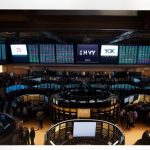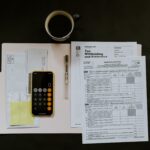thrive33
DIARIES
NICOLE STRAND
PHILADELPHIA, PA
5/8/20
NO. 1
philadelphia, PA
Nicole Strand
Nicolle K. Strand is Assistant Director for Research at the Center for Urban Bioethics at the Lewis Katz School of Medicine at Temple University. Before joining Temple, she was a Senior Policy and Research Analyst for the Presidential Commission for the Study of Bioethical Issues under President Barack Obama. Strand also spent time at the US Food and Drug Administration, and at the University of Pennsylvania’s Office of General Counsel. She holds a JD and a Masters in Bioethics from the University of Pennsylvania.
Since the pandemic started, I’ve been working harder than I have ever before. I started out working from home, and that was okay, but I felt like I wasn’t doing enough. Now, I come into work every day, at a medical school, just across the street from the hospital where there are currently 180 Covid patients being treated.
I work in bioethics, which is usually a pretentious term for people who sit in ivory towers and pontificate about what should happen in certain unlikely ethical dilemmas. But, my brand of bioethics focuses more on truly engaging with communities to tackle issues like health inequity, social determinants of health, racism, and poverty. Issues that really impact large swaths of our country but don’t get talked about enough in the big tall fancy buildings.
This pandemic has been a tragedy for the poor, mostly black and brown community where I come to work every day. But it’s also been a unique opportunity (something that feels very odd to say) to put our money where our mouth is.
This pandemic has been a tragedy for the poor, mostly black and brown community where I come to work every day. But it’s also been a unique opportunity (something that feels very odd to say) to put our money where our mouth is. Rather than doing research and slowly trying to move the ball forward on egregious health inequity, this time, we get to actually be on the ground and do something about it. We have resources, we have space (a large empty medical school building), we have workers who would otherwise be doing other jobs that can’t be done right now. And we are in a position to serve so, ethically, we must. Doing so serves two goals: first and foremost, it allows us to provide support to our community as much as humanly possible. But also, secondarily, it helps us continue to establish and build trust with a community that has no reason to trust people like me. We are demonstrating that we are there for them in the toughest time, and I hope that it will translate to a strengthened relationship in the long-term.

We are delivering food directly to 550 families a week. I went from being a bioethicist who read journal articles and conducted high-level research, to the person who calls food distributors and tries to figure out how many 66-ounce cans of tuna fish we need to feed 500 people this week (by the way—I don’t think I will ever be able to eat a tuna fish sandwich again). We have re-purposed our staff into food packers and deliverers. We are also coordinating a number of other initiatives. We are handing out free cell phones to patients in the hospital whose phones died or ran out of minutes, to make sure they can connect with their loved ones. We are making 5000 masks with filters in them and distributing to our neighbors. We are reminding our neighborhood how important things like voting and the census are, to make sure this community gets the resources it needs.



I was talking to a friend the other day, and she was saying how depressed she was. And I checked in with myself, and I’ve had bad, bad, bad days, for sure. But I don’t really feel depressed. And I think it’s because there’s something uniquely gratifying about being in a position to help, and simply doing so. I don’t do, or really think about, anything else anymore. And that’s probably to my detriment—I don’t have time to work out or read books or do the job I used to do before this started. But it also has been somewhat rewarding to throw myself entirely into something that matters. 3 months ago I couldn’t have imagined some of the stuff I think about in a day, today. Like, how many pounds of mayonnaise fit in one person’s Volkswagen Jetta? If I buy 10 gallons of hand soap, can I pour them into individual bottles by hand, or do I need a funnel? What do I do with the miscellaneous donations we’ve received for our food drive, like 20 boxes of children’s Claritin and a bottle of perfume?
Maybe focusing on these questions helps stave off the existential dread.
If so—that’s fine for now.
Past Articles







